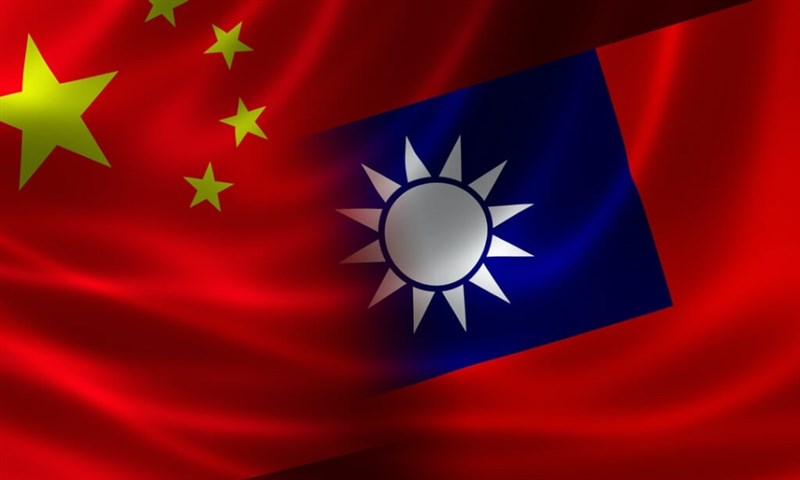AIT's Taiwan status comments consistent with long-held U.S. stance: Ex-envoys

Washington, Sept. 14 (CNA) Two former American Institute in Taiwan (AIT) officials told CNA on Saturday that recent comments by AIT on Taiwan's political status are consistent with the long-standing position of the United States on the issue.
Richard Bush, former AIT chair, and Robert Wang, ex-AIT deputy director, both told CNA in separate emails that the U.S. does not consider the political status of Taiwan to have been determined by any post-World War II documents, and that Washington expects the issue to be resolved peacefully.
Wang cited the Taiwan Relations Act (TRA), a 1979 U.S. law governing its exchanges with Taiwan after Washington switched diplomatic recognition to Beijing. The TRA made clear that, "The United States decision to establish diplomatic relations with the People's Republic of China (PRC) rests upon the expectation that the future of Taiwan will be determined by peaceful means," he wrote.
"In other words, the TRA makes clear that the U.S. does not consider the political status of Taiwan to have been determined by any previous documents, including the World War II-era declarations or treaties," he wrote.
Bush shared a similar view, saying the U.S. has long stated that "cross-strait differences should be resolved peacefully and with the assent of the people of Taiwan."
Both former U.S. envoys made the remarks when asked by CNA to comment on AIT's statement Saturday responding to China's reliance on World War II-era documents, including the Cairo Declaration and the Potsdam Proclamation, as justification for its sovereignty claim over Taiwan.
AIT represents U.S. interests in Taiwan in the absence of official diplomatic ties.
On Aug. 15, after the Lancang-Mekong Cooperation Foreign Ministers' Meeting held in Anning, Yunnan, Chinese Foreign Minister Wang Yi (王毅) said the Cairo Declaration and Potsdam Proclamation "clearly defined Japan's responsibility for the war and required that Japan return all the territories it had stolen from China, including Taiwan."
He described this as "an indisputable outcome of the victory in the World Anti-Fascist War and constitutes an important part of the post-war international order."
Asked to comment on the issue, an unnamed AIT spokesperson told CNA on Saturday that China "intentionally mischaracterizes World War II-era documents, including the Cairo Declaration, the Potsdam Proclamation and the Treaty of San Francisco, "to try to support its coercive campaign to subjugate Taiwan."
"Beijing's narratives are simply false, and none of these documents determined Taiwan's ultimate political status," the spokesperson said.
"False legal narratives are part of Beijing's broader campaign to try to isolate Taiwan from the international community and constrain the sovereign choices of other countries regarding their interactions with Taiwan," the unnamed spokesperson added.
AIT's comments on the issue echoed Foreign Minister Lin Chia-lung's (林佳龍) Aug. 16 statement rebuking Wang's remarks.
Lin noted that after World War II, the San Francisco Peace Treaty -- binding under international law -- superseded the political statements made in the Cairo Declaration and the Potsdam Proclamation. The treaty did not cede Taiwan to the PRC, and the PRC has never governed Taiwan, officially named the Republic of China (ROC), he said.
Lin stressed that the ROC government is the "sole legitimate government" administering Taiwan and representing it internationally.
He added that this established the cross-strait status quo in which the ROC (Taiwan) and the PRC exist as equals, with neither subordinate to the other.
Chinese officials have repeatedly asserted that the 1943 Cairo Declaration and 1945 Potsdam Declaration are two historical documents which prove that mainland China has jurisdiction over Taiwan.
However, both documents only set the conditions for Japan's surrender, including forfeiting control of Taiwan and restoring it to the ROC.
The PRC was founded in 1949 following the Chinese civil war, when the ROC government relocated to Taiwan.
Meanwhile, the 1951 Treaty of San Francisco formalized Japan's renunciation of sovereignty over Taiwan, but it did not specify a recipient.
-
Politics
Lawmaker released on NT$1 million bail amid multiple probes
02/13/2026 10:05 PM -
Society
Taiwan allows import of spinal cords from U.S. cattle 30 months or younger
02/13/2026 09:59 PM -
Business
1,811 industrial products exempt from U.S. tariffs: Economics minister
02/13/2026 08:56 PM -
Society
Taoyuan airport braces for record daily passenger traffic as LNY starts
02/13/2026 08:35 PM -
Business
Taiwan's pig farmers urge enactment of bills to enforce origin labels
02/13/2026 08:32 PM